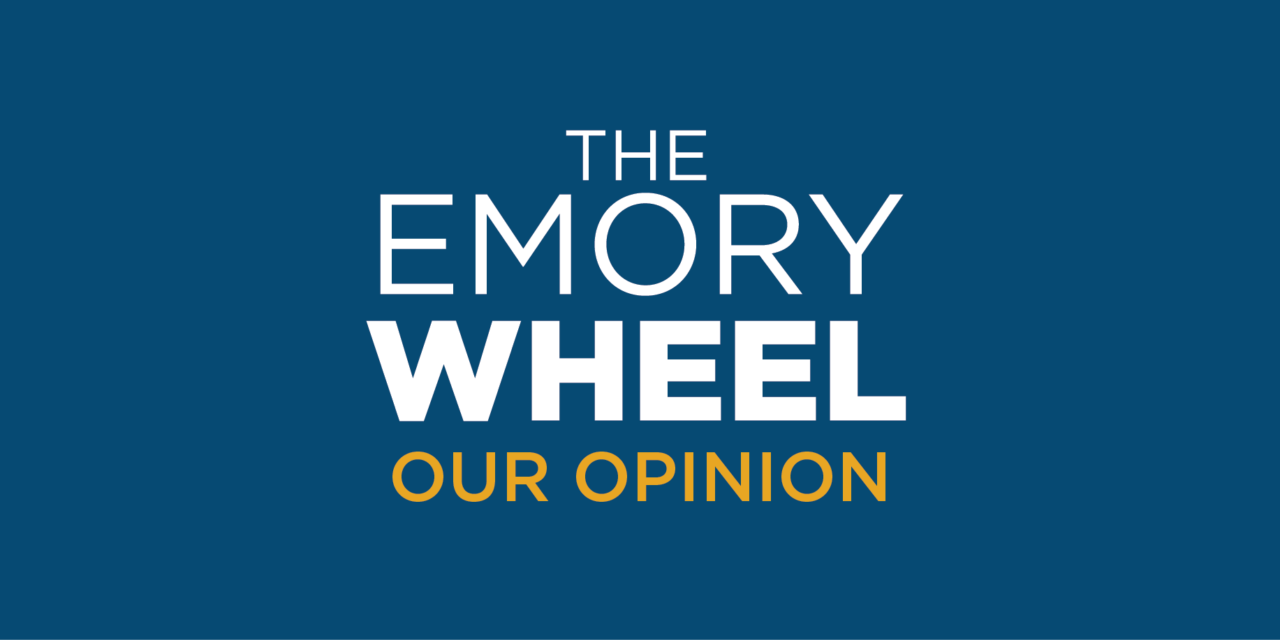As Dooley releases students from class, music blares from speakers on Asbury Circle and campus chatter energizes students for this weekend’s J. Cole concert, it is clear Emory’s Student Programming Council (SPC) has put on a very successful Dooley’s Week thus far.
With much of the focus this week on SPC, the Wheel would like to take a moment to point out three areas where we see a need for the organization to improve in the next year, especially given its influence and power on campus. These areas are SPC’s diversity, transparency and lack of strong student input.
We believe SPC’s budget is lacking transparency due to the nature of its funding. Currently, the SPC budget amount, which is approved by SGA, comes from the University-Wide Organization account, a portion of total revenue the SGA receives from the Student Activity Fee (SAF). Each enrolled University student pays $184 for the annual SAF. A significant proportion of this fee is contributed to SPC.
Understandably, some of the budget information of SPC is completely private. SPC says that this information is withheld to protect their ability to negotiate with potential artists. However, like taxpayers demanding transparency from their government, we ask for more transparency of SPC’s complete budget, excluding the specifics of artists’ contracts with SPC.
For example, the organization could release non-specific budgets, such as the total budget for this year’s Dooley’s Week, without jeopardizing their contracts.
Other schools offer helpful comparisons. Washington University in St. Louis’ Social Programming Board — their SPC equivalent — publishes a complete budget, along with other top universities, like Rice University.
In comparison, the Student Activity Committee (SAC) at Oxford College not only releases its budget, but Oxford’s SGA publicly discusses it.
Oxford and Emory obviously function differently, but there are lessons to be learned from SAC’s openness at Oxford.
The next major area the Wheel believes SPC should improve in is the organization’s diversity. We conducted an informal review of SPC’s membership and found that roughly 75 percent of SPC is white, and a significant proportion of its members participate in Greek life. While this problem pervades various organizations on campus, SPC sits in a unique representative position because of its use of the SAF.
Because less than half of Emory’s student body is white and only 30 percent of students participate in Greek life, this organization is not representative of the University in its current state.
It is not our intention to nor can we prove that SPC is an unfairly exclusive organization on campus, but there is perception across Emory that being a friend of a current member greatly increases the chances of being accepted into the organization. This is a perception SPC should attempt to address both internally and externally.
Our last concern is with regard to the student input that SPC receives from the Emory community.
SPC members say they have not put out a list of potential artists for students to select from, as they don’t want to raise student expectations. We have no illusions about how difficult it is to book artists, and we realize how frustrating it must be for SPC to receive outlandish student requests such as Beyoncé. However, SPC must think more critically as to how they can elicit student feedback.
SPC could ask for feedback through an online survey about what students’ interests are in various types of music genres. The survey could also inquire about other Dooley’s Week events and critiques of decorations. A survey would answer similar questions preemptively.
These surveys could also reach out to the student body to see if they have entertainment industry connections in an effort to broaden SPC’s options for artists. Additionally, SPC could conduct focus groups in which they could simultaneously manage expectations while garnering in-depth feedback from students across campus to ensure the performers appeal to the widest range of of students.
In this regard as well, Oxford’s SPC-equivalent takes student input into consideration much more effectively than ours does.
We are all looking forward to future SPC events, but since students do not decide whether or not they have to pay their SAF, SPC needs to be more open and transparent with those it seeks to entertain.
The above staff editorial represents the majority opinion of the Wheel’s editorial board.
The Emory Wheel was founded in 1919 and is currently the only independent, student-run newspaper of Emory University. The Wheel publishes weekly on Wednesdays during the academic year, except during University holidays and scheduled publication intermissions.
The Wheel is financially and editorially independent from the University. All of its content is generated by the Wheel’s more than 100 student staff members and contributing writers, and its printing costs are covered by profits from self-generated advertising sales.





